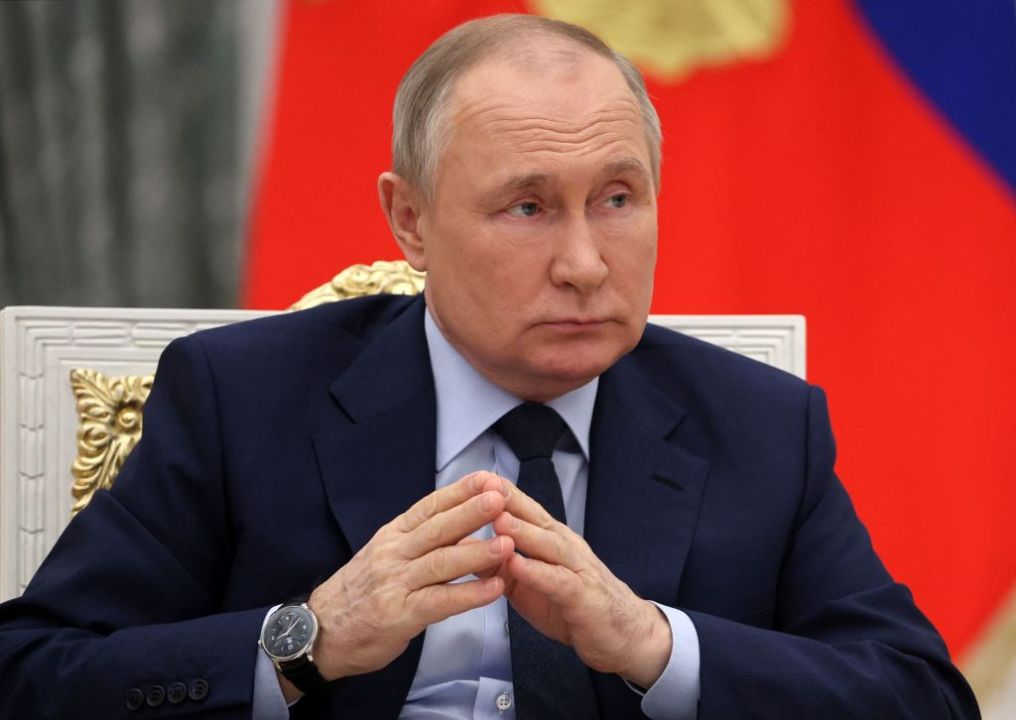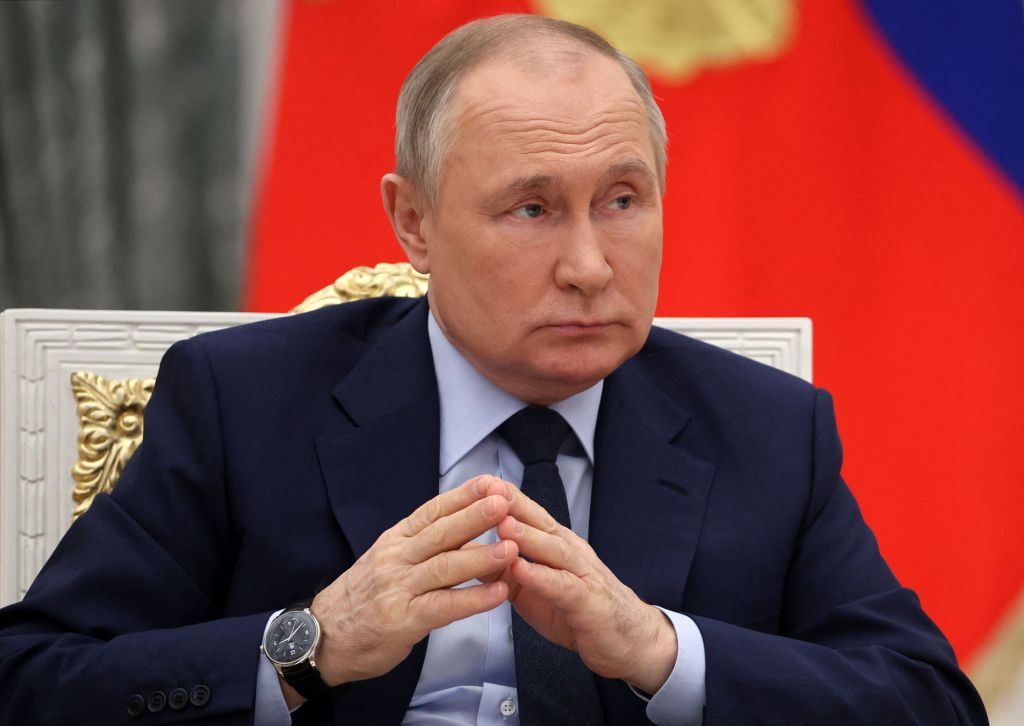Journalists love being put on blacklists. In a profession that prides itself on holding the powerful to account, there’s no better accolade than being banned from a politician’s press conferences, put on some spin doctor’s dossier of ‘unfriendly’ hacks, or better still, declared persona non grata by some tyrant’s regime. It’s the hack’s equivalent of combat spurs, to be gathered alongside Pulitzers and war wounds.
So what greater backhanded compliment could there be than to be banned by Vladimir Putin from visiting Russia? This was the honour conferred on me last week, when myself and 14 other British journalists were put on a Kremlin sanction list for our allegedly hostile coverage of the war in Ukraine. True, we’re add-ons to a previous list of 40 that the Kremlin put out last year, but better late than never, eh? Plus it means I now join an august club that includes biggies like Clive Myrie and Orla Guerin from the BBC, and columnists such as David Aaronovitch and Con Coughlin. Friends and colleagues have told me to wear it as a ‘badge of pride’, hailing it as a tribute to my trenchant reporting etc. Some folks have even joined my meagre Twitter following, assuming that I am some well-informed Kremlin critic.
Alas, I am not sure it’s quite what it seems. For a start, the Kremlin got my name wrong. I’m on the list as Keith Freeman, not Colin, which makes me sound like some extra from The Office. In the world of reporting, where basics facts matter, messing names up is a discourtesy in itself. And much as it may pain me to admit it, none of the reporting I’ve done from Ukraine particularly qualifies me as someone the Kremlin should have reason to fear. Yes, I’ve been there six times since the war started, reporting mainly for the Telegraph, plus bits for The Spectator. But like most other correspondents who go there, I focus on the human cost – the bomb-wrecked cities, the atrocities, the overflowing war cemeteries – of which there is all too much to go round. In a war this big, there are not many exclusives on human suffering, so I can’t imagine I’ve upset the Kremlin much more than anyone else.
It’s the hack’s equivalent of combat spurs
More generally, though, a close look at this list shows no obvious rationale behind the names on it whatsoever. The first tranche from last summer included a broad – and arguably even-handed – list of Fleet Street editors, including those of the Guardian, Telegraph, Times, and Daily Mail, plus their rough equivalents at Sky, the Beeb and Channel Four. Then there’s various foreign correspondents who’ve been on the ground, including Stuart Ramsay of Sky, the Guardian’s Luke Harding, and my Telegraph colleagues, James Rothwell and Joe Barnes. That much, I get – target the big honchos, and the footsoldiers doing their bidding. But the list includes journalists who’ve never even been to Ukraine, as well as randoms like Huw Edwards – who, whatever you might think of him these days, is not known as a Kremlin bear-baiter. Others named are backroom operators, such as Keith Underwood, the Guardian’s chief financial officer, and Mark Musgrave, the Telegraph’s chief people officer, who – the last time I checked – is not currently on the foreign desk’s roster for a stint in the Donbas. It’s as if the list has been compiled by some junior apparatchik in the Russian government’s press department, relying on Google News and LinkedIn. Which is odd, because after years of hiring expensive British PR firms to advise them, one thing Putin’s Kremlin should have some expertise on who’s who in the British media.
So what is going on? A charitable explanation is that this is all part of a Kremlin campaign of disinformation, designed to sow confusion and division within the enemy’s press corps. While I could be churning out another piece on Kremlin warcrimes, here I am wasting time trying to detect method in its madness, and fuming that two of my Telegraph colleagues got put on the list ahead of me. Maybe even calling me Keith is a calculated snub, designed to make me feel like some obscure Russian republic that no-one in Moscow quite cares to remember the name of. But crediting this to the hoary old chestnut of Russian maskirovka, or warfare by deception, seems on the whole a bit generous.
According to one Russia expert I spoke to, however, the list does have one semblance of logic. Which is that with a few exceptions, most of those on it – myself included – have never been based in Russia, nor do we speak the language. Britain is home to many ex-Moscow bureau chiefs, including some with hawkish opinions, yet most as yet remain unsanctioned. Perhaps the Kremlin thinks that as journalists with a better understanding of the Russian mindset, they are best left alone. As for sanctioning the chief financial officers, the logic may be that British newspapers operate like many Russian ones, with a wealthy oligarch wielding all the power. Somehow, though, I can’t see some beancounter charging into a British editor’s office and telling them to tone down the Ukraine coverage because the family summer break in Sochi is now at risk.
In the meantime, all I can do is sit back and enjoy my time in this elite club before the Kremlin dilutes its kudos by adding even more unlikely members. Who, after all, will be on the next blacklist? The health and beauty editor of Woman’s Own? The editor of Cage and Aviary Bird? Gary Lineker? Or, for that matter, just some other random bloke called Keith?







Comments